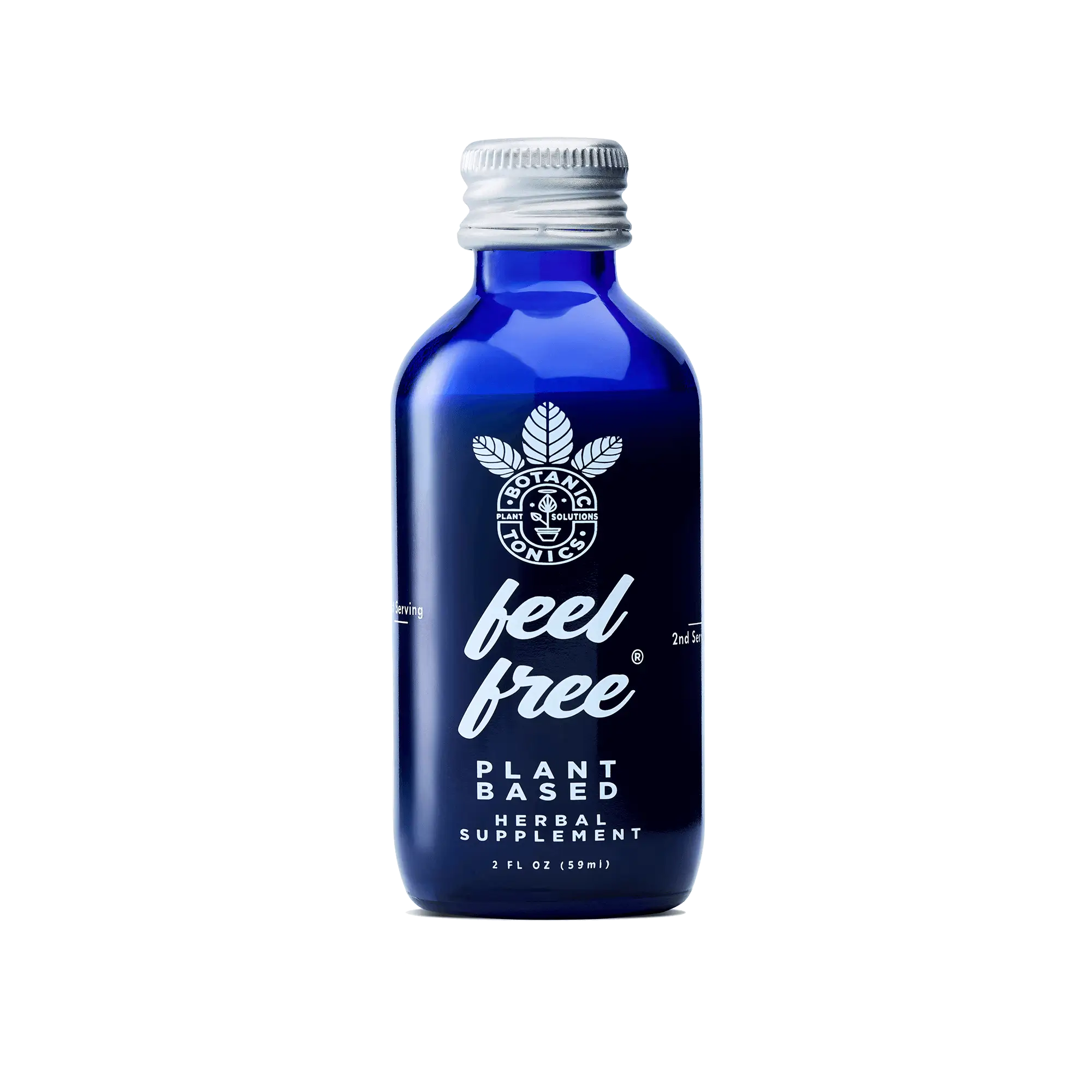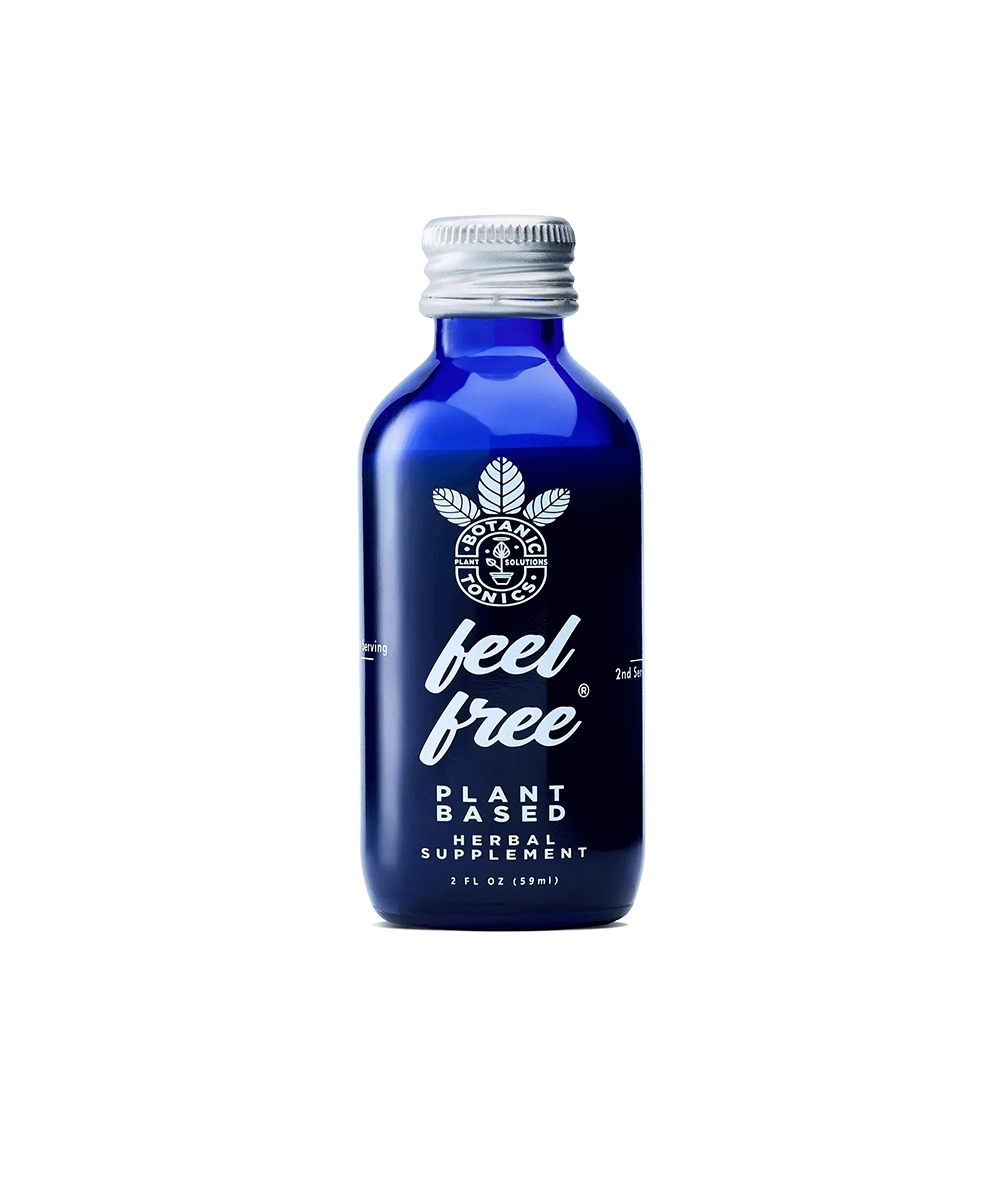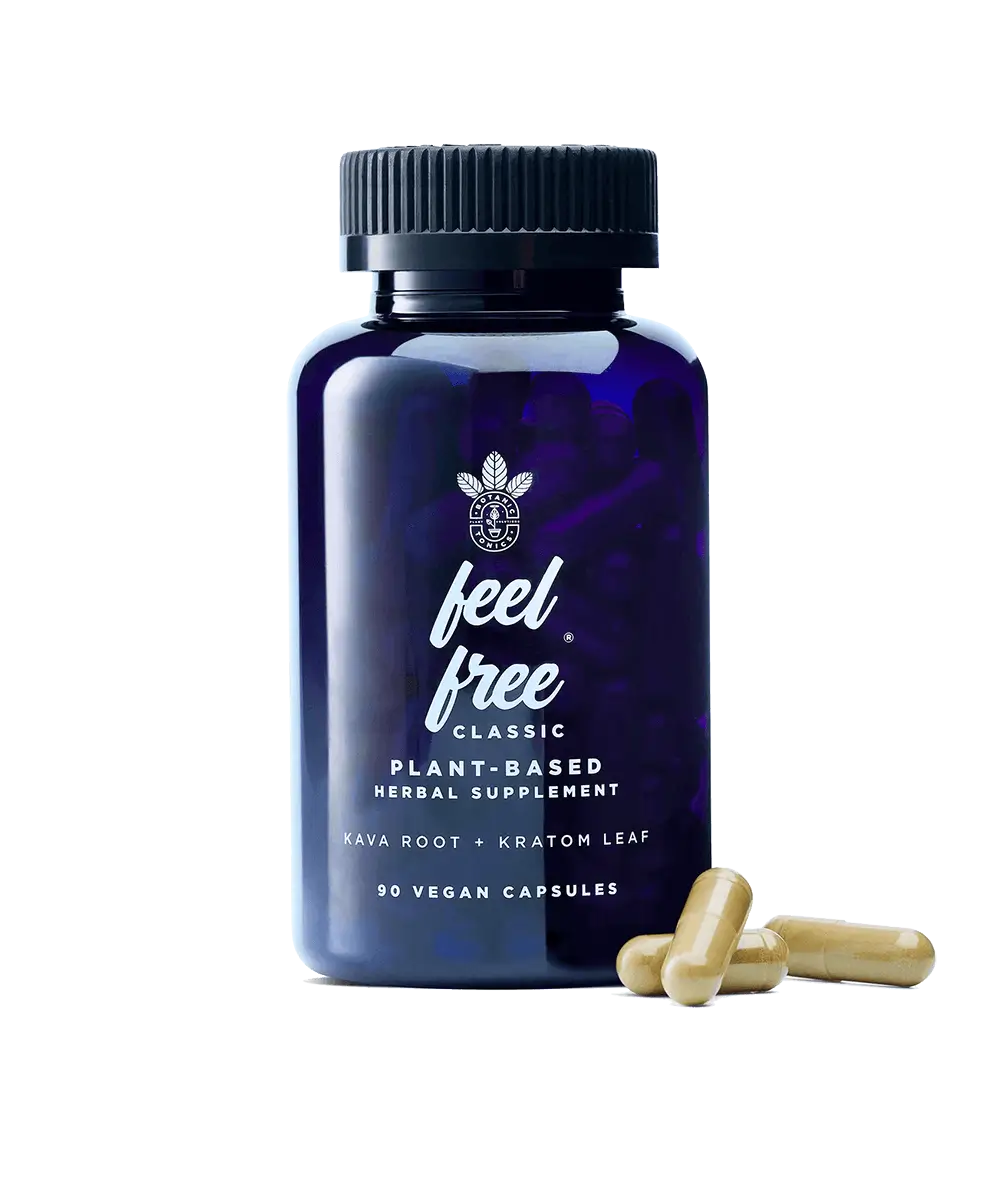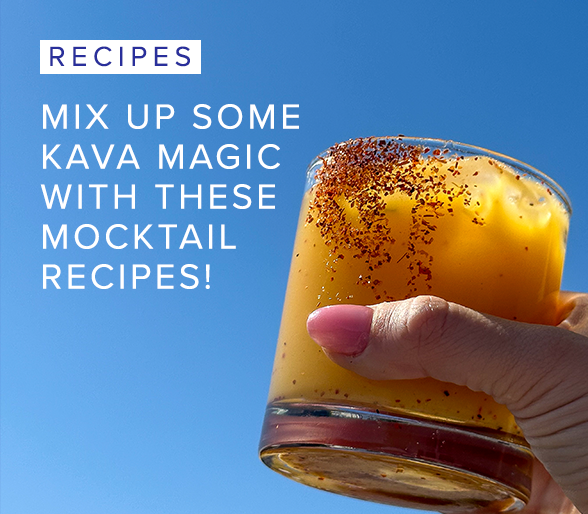Kanna vs. Kava: Key Differences
Herbs have been a crucial part of medicine for thousands of years. Long ago, people around the world used plants to help all kinds of ailments.
Back then, telling the difference between wild-grown medicines wasn’t all that difficult. Gatherers could look at the shape and size of the plant, the color of its flowers, and much more.
Today, with natural health remedies being sold as powders and tonics, understanding the difference between two plants is more challenging.
Take kanna and kava, for instance. Even their names sound the same. To make matters more confusing, both plants have similar effects. So, to help you understand the differences between the two, we’ve put together this kava vs. kanna guide.
What is Kanna?
Also called sceletium, kougoed, or canna, kanna (Sceletium tortuosum) is a small flowering plant native to parts of South Africa.[1] It has long been used as traditional medicine by people in that region.
Traditionally, kanna has been chewed raw, though it may also be smoked, drunk as tea, or snuffed.[1] Today, it’s also available in the form of dietary supplements, such as powders, capsules, and wellness tonics.
People consume kanna for a variety of reasons. Users believe the natural remedy can help with symptoms like:[2]
- Anxiety
- Depression
- Stress
- Pain
- Trouble sleeping
Additionally, kanna is consumed by some people for a mild “high”—it’s sometimes referred to as “Nature’s MDMA.”[3]
What is Kava?
Kava (Piper methysticum) is a green, leafy plant that grows naturally in the South Pacific. Also known as kava kava, the plant’s roots hold all the power.
For centuries, people native to islands like Fiji and Vanuatu have ground the kava root into a paste, mixed it with a liquid, and consumed the concoction as part of traditional ceremonies and rituals.[4] These days, kava extract is used around the world for its beneficial properties, including in wellness products like our kava capsules and kava tonic.
As kava root users will tell you, the plant may be used to:
- Induce relaxation
- Increase sociability
- Elevate mood
- Occasionally reduce feelings of anxiety and stress
Comparing Kanna and Kava
As you might have noticed, kanna and kava have similar effects. Both are routinely used as potential solutions for stress and anxiety.
That said, there are some notable differences between the two. Let’s compare kanna vs. kava directly to give you a better idea of each one.
Key Benefits
First, let’s start with the positives.
People tend to gravitate toward kanna because of its mental clarity effect.[3] Afflictions like depression and anxiety can cause your brain to feel foggy; Kanna is reported to help alleviate those issues by clearing away that fog.
Scientifically speaking, kanna supposedly works by boosting serotonin reuptake in the brain.[3] In doing so, the plant can improve cognitive function, memory, and attention, which may reduce stress and improve your mood.
The benefits of kava and kava extract are similar. People who have used kava have noticed feelings of contentment and deep relaxation while overall enjoying an elevated mood.[5] Thanks to these effects, kava may help with sleeplessness and occasional bouts of anxiety.
Kava relies on a chemical called kavalactones, which may have neuroprotective properties, to deliver these benefits[6].
If you're interested in exploring other botanical comparisons, you can read about kava vs. weed to dive into the distinctions and benefits of both substances.
Side Effects and Safety Considerations
This kava kava vs. kanna conversation wouldn’t be complete without covering any possible downsides. With that in mind, we need to dive into the potential negative effects of both plants.
Clinical studies on kanna have been limited, but signs point to a handful of mild side effects. For instance, using kanna may result in unwanted side effects like:
- Headaches
- Loss of appetite
- Depression
Additionally, because kanna is sometimes used to get “high,” users need to be aware of the potential euphoric effects.[3]
As for kava, the root has been used for centuries and is considered relatively safe. However, some health professionals have noted that using kava could contribute to liver problems.[5] More research is needed before definitive claims can be made, but if you have liver concerns, you may want to avoid kava.
How to Choose Between Kanna and Kava
In the end, the choice between kanna and kava depends on your wellness needs.
If you suffer from symptoms of depression, feel chronic pain, or have trouble sleeping, kanna could be right for you. If you experience occasional feelings of anxiety and stress and need help with relaxation, kava might be a better option.
No matter what you choose, be sure to talk to a doctor before taking a new dietary supplement. Both kanna and kava are known for their benefits, but with the possibility of potential side effects, you should always discuss your choices with an expert.
Try Kava with Botanic Tonics
Kava and kanna are both incredible natural remedies. Using either one may be beneficial for your physical and mental well-being.
At Botanic Tonics, we put our faith in the power of kava. It’s why we include kava root extract in every one of our feel free tonics and capsules, along with various other powerful natural ingredients. Our botanical blends are designed to promote mental clarity and overall well-being.
To experience the benefits of kava for yourself, try Botanic Tonics today.
Sources:
- National Center for Biotechnology Information. A Chewable Cure “Kanna”: Biological and Pharmaceutical Properties of Sceletium tortuosum. https://www.ncbi.nlm.nih.gov/pmc/articles/PMC8124331/
- WebMD. Sceletium - Uses, Side Effects, and More. https://www.webmd.com/vitamins/ai/ingredientmono-1259/sceletium
- Verywell Mind. Is Kanna Really Nature's MDMA? Here's What You Need to Know. https://www.verywellmind.com/news-is-kanna-really-natures-mdma-heres-what-you-need-to-know-5425954
- Botanic Tonics. What is Kava? https://botanictonics.com/pages/kava-101
- Mount Sinai. Kava kava. https://www.mountsinai.org/health-library/herb/kava-kava
- National Center for Biotechnology Information. Neuroprotective properties of kavalactones. https://www.ncbi.nlm.nih.gov/pmc/articles/PMC4498339/















